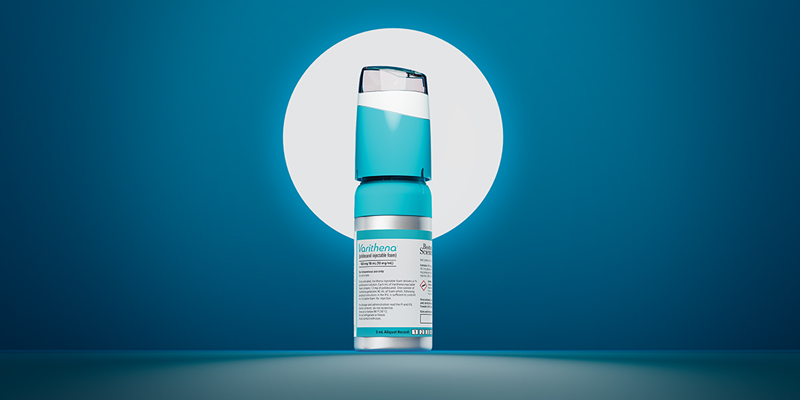The VIEW-VLU study evaluated venous leg ulcer healing rate, recurrence rate, and patient reported outcomes for Varithena.
Key study results
In a challenging population, treatment of venous leg ulcers with Varithena showed rapid initial wound healing and sustained improvements in quality of life and pain.1
Initial closure

12-Month closure

Symptom improvement

Patient characteristics
- Obese to extremely obese (36.3 ± 10.2 BMI)
- Chronic ulcers (8 months ± 12 months at first encounter)
- Severity of ulcers:
- 26.3% circumferential wound
- 12.5% hospitalization for target ulcer
- 27.5% of ulcers were previously treated
Study methods
- Total injection sites 2.1 ± 1.6
- Varithena volume injected (mL):
- 3.9 ± 5.7 above the knee
- 9.4 ± 4.5 below the knee
- Follow up visits at 1 week, 12 weeks, and 12 months; phone calls at 6 months post-treatment and 3 months post-wound closure
VIEW-VLU did not exclude patients based on wound size or wound age, leading to a challenging patient population
See how Varithena microfoam impacts a venous leg ulcer
Hear Principal Investigator Dr. Michael Shao discuss the unique method and distinctive results of the VIEW-VLU study
References
1. Shao MY, Harlin S, Chan B, Santangelo K, Fukaya E, Stoughton J, Kolluri R; VIEW-VLU Investigators. VIEW-VLU observational study of the effect of Varithena on wound healing in the treatment of venous leg ulcers. J VascSurg Venous LymphatDisord. 2023 Mar 25:S2213-333X(23)00131-2. doi: 10.1016/j.jvsv.2023.01.011. Epub ahead of print. PMID: 36972751




